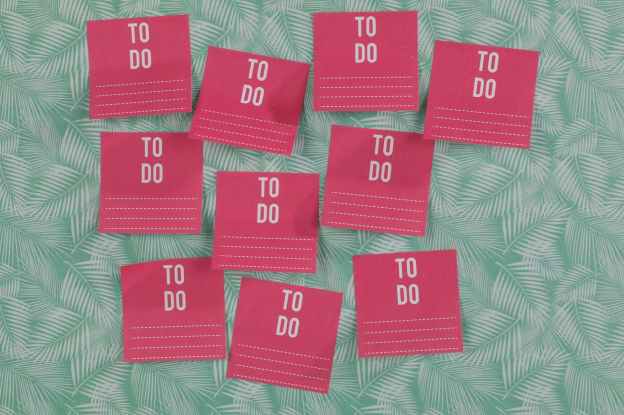Written by Cameron Henderson
Hello, folks! The semester is drawing to a close, and that means finals–for some of you, lots of finals at once. A lot of you will therefore be juggling multiple papers and studying for tests. That can be stressful! We at the Write Site don’t want you to burn yourself out, so here are some strategies you can use to help you manage multiple assignments at once.
Create an assignment calendar
Maybe you already have an assignment planner, maybe you don’t, or maybe you started one at the beginning of the semester and haven’t looked at it since week three (@ me…). Whatever the case, I cannot recommend enough that you sit down with the syllabi from each of your classes and write down every deadline listed for the papers you are working on. That includes outlines, drafts, peer reviews, update posts, presentations, and the finished papers. You can organize this into a calendar or a to-do list; just make sure you can see what kind of progress you need to be making for each class. This will help you to prioritize your work and avoid losing points for missing any smaller deadlines.
These little in-between deadlines professors often assign may seem like an annoyance while you’re trying to balance everything on your plate, but they exist for a good reason! Having concrete, graded milestones to ensure that you’re making some progress on your papers actually helps a ton. An annotated bibliography gives you sources to use in your paper as well as ideas for where you might want to take your argument. You may open up the “update discussion post” on Canvas and realize you haven’t thought about your paper in a week, but now at least you’re thinking about it, even if it feels like you’re just making something up for the grade. Maybe you are just making it up, but you can still use the ideas you come up with and get some feedback from your instructor! Additionally, oftentimes these little assignments are intended as a buffer for that final grade. That’s why it’s so important to keep up with these due dates and actually complete these assignments.
Block out some dedicated time to work on your assignments. Prioritize more urgent deadlines
Now that you have your calendar of due dates, you can start scheduling yourself some time to work on specific assignments. This may mean that you mark out a day for one assignment and a day for another, or it may mean going in and scheduling your week hour by hour to make sure your time is more firmly managed. Some people will find that having a more tightly scheduled plan reduces uncertainty (and, therefore, anxiety). Some people prefer to keep their plan looser so they don’t feel guilty if they stray from it. Either way works, but I absolutely recommend having some kind of work schedule to follow.
Looking over the deadlines, you can get a sense of what you need to focus on now and what you should save for later. This may seem obvious, but sometimes our brains tell us to work on things we consider more important (or easier) first. Blocking out time for things that are due sooner will help save you from last-minute crunch down the line. That brings me to my next point:
Any progress you make is a good thing
Say you followed the last step and blocked out time for the assignment that is due sooner. You get to your scheduled work time and open up the assignment, but you find yourself stuck and unable to make the progress you were hoping for. In this case, any kind of progress you can make will benefit you down the line, even if that means doing something small and moving onto the next assignment.
There are different small steps you can take to make writing easier when you return to an assignment later on. You could spend a few minutes using a brainstorming technique. You could create a to-do list or checklist with things you need to do for one particular assignment assignment. Maybe you could create an outline with ideas about how many pages each section needs to be. You could look for one scholarly source on the TWU databases and give it a quick read to see what the main idea of the article is. Even if you only get a little bit done, whatever you come up with will be processing in the back of your mind as you put the paper aside and do something else. You may find when you come back to it that you have even more ideas, or that your writing flows much easier than before.
Practice self-care
It’s easy to burn out when you’re juggling multiple finals at one time. It’s important to make sure you are taking breaks from writing to take care of your body and rest your mind. When I create a schedule for working on my own papers, I always make sure to leave time open to do something that isn’t work–take a nap or a hot bath, eat a snack, drink some water, go for a little walk. I always feel rejuvenated after a walk; if I take a break to watch an episode of Property Brothers, I find that my lack of momentum carries over into being unable to get back to work. Taking a walk gets me doing something, which makes transitioning back into school work much easier.
Leaving your schedule open for self-care is also easier when you start on things early–waiting until the last minute means less time for breaks, which makes burnout more likely. I get it, I’ve been there. Sometimes you find yourself drinking coffee in the library at midnight and asking where you went wrong. Trying to stick to your schedule may not feel like self care now, but it will make things easier for Future You. Future You will thank you for that. If you don’t want to let Future You down, remember: small progress is progress, and opening up your document and writing one sentence is better than not doing anything at all.






